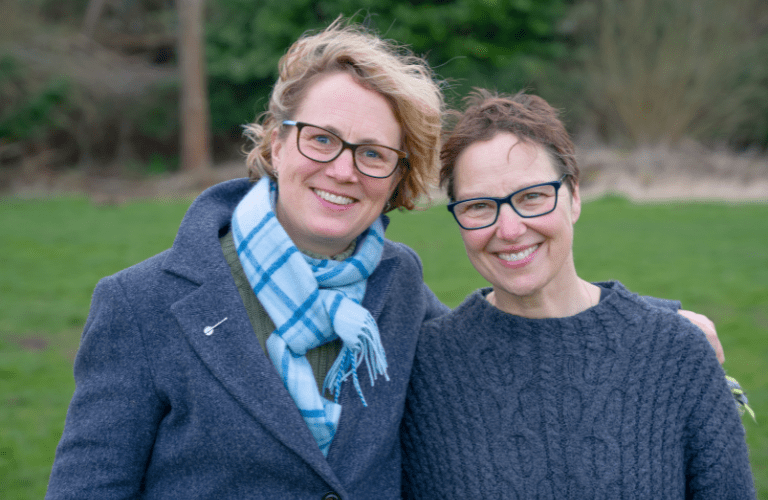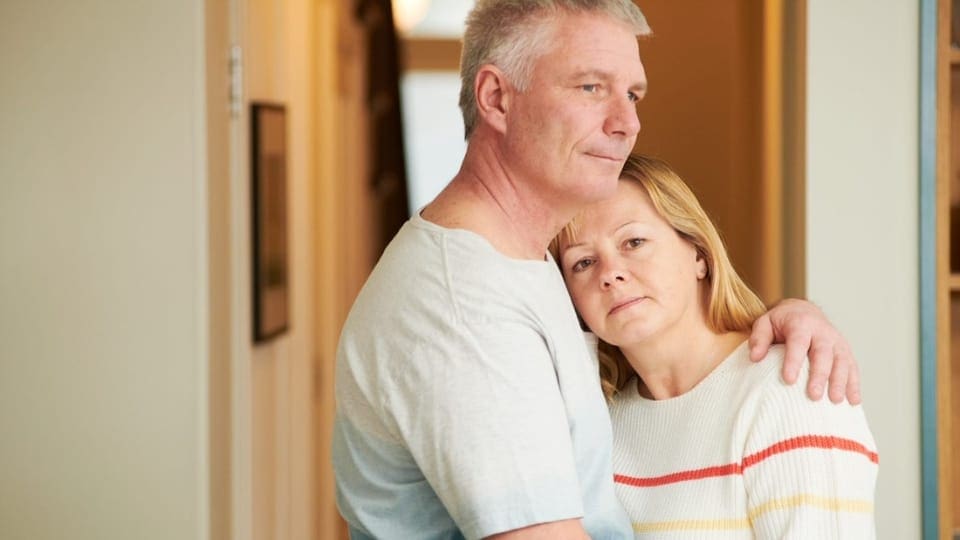
Jude’s story
Jude was diagnosed with young onset Alzheimer’s in 2021 aged 57. She lives in Oxford and is married to Becky. They have two daughters, aged 17 and 19.

When dementia develops in people under the age of 65, it is known as ‘young onset dementia’. An estimated 70,800 people in the UK are living with young onset dementia.
A prompt diagnosis means support can be put in place to help the person live as well as possible with the condition.
Dementia is often associated with memory loss, but people with young onset dementia may not have difficulties with memory in the early stages.
Common symptoms include changes in:
The causes of young onset dementia are not fully understood, but factors that increase the risk of developing it include:
People who are under 65 are more likely than older people to be diagnosed with an inherited form of dementia, or a rarer type that can be difficult to recognise.
If someone is concerned about possible symptoms of young onset dementia, it is important to consult a GP as soon as possible.
It is helpful to keep a diary or notes about the symptoms. You could use the Young Dementia Network’s personal checklist for this.
It is also a good idea for a family member or friend to accompany the person to the appointment so they can say what changes they have noticed.
In the initial appointment, the GP should ask the person about their symptoms and any family history of dementia.
They should conduct a physical examination and organise blood tests and may send the person for a brain scan.
This can help to identify other conditions that have similar symptoms to dementia, for example:
The GP may briefly test the person’s memory and cognitive abilities, which might include asking them to:
However, because memory loss does not always occur in the early stages of young onset dementia, some people with dementia may perform well in the test.
If other physical or mental health conditions have been ruled out or treated, the GP should refer the person for a detailed assessment with a memory service. This may be carried out by a specialist such as a psychiatrist, neurologist or clinical psychologist.
The person may also need further tests and scans such as an MRI scan.
Because health professionals often lack specialist knowledge of young onset dementia, the person may see several different specialists before a diagnosis is made.
If someone is diagnosed with dementia, they should be given more information about their diagnosis and any treatments or support that may be beneficial, including medication and specialist therapies.
Some people are prescribed medications for dementia. These are:
These are usually prescribed for Alzheimer’s disease but may sometimes be prescribed for mixed dementia, dementia with Lewy bodies and Parkinson’s.
Medication does not cure dementia or stop it progressing, but it may help with the symptoms.
However, it does not work for everyone and may cause unpleasant side effects.
If someone has vascular dementia (dementia caused by damage to the blood vessels in the brain, for example by high blood pressure or a stroke) they may be prescribed medication to treat the underlying factors such as high blood pressure or high cholesterol.
The person’s dementia specialist should discuss the pros and cons of medication, and the person should be monitored when they start taking it to ensure they are tolerating it.
Cognitive Stimulation Therapy (CST) is a programme of activities to improve cognition in people with dementia and may be as beneficial as medication for managing the symptoms. The sessions are usually held weekly.
The person’s GP can tell them if CST is available in their area.
Counselling may be helpful for a person coming to terms with a young onset dementia diagnosis. They may be able to access counselling through the memory service, or ask their GP for a referral.
Connecting with other people with young onset dementia can be a great support. For information on face-to-face and online support groups and services for people with the diagnosis, visit our database.
If someone is reluctant to see their GP about possible signs of dementia, it may help to explain that:
It may be helpful to ask another trusted person – such as a family member, friend or professional – to speak to the person. Sometimes, they may be more open to listening to someone who is slightly removed from the situation.
You could also write to the person’s GP to outline your concerns. They will not be able to break their patient’s confidentiality, but they may decide to call them in for a face-to-face appointment.
To speak to a dementia specialist Admiral Nurse about young onset dementia symptoms, diagnosis or any other aspect of dementia, please call our free Dementia Helpline on 0800 888 6678 (Monday-Friday 9am-9pm, Saturday and Sunday 9am-5pm, every day except 25th December), email helpline@dementiauk.org or you can book a phone or video appointment.
Dementia UK information
Other resources

Jude was diagnosed with young onset Alzheimer’s in 2021 aged 57. She lives in Oxford and is married to Becky. They have two daughters, aged 17 and 19.